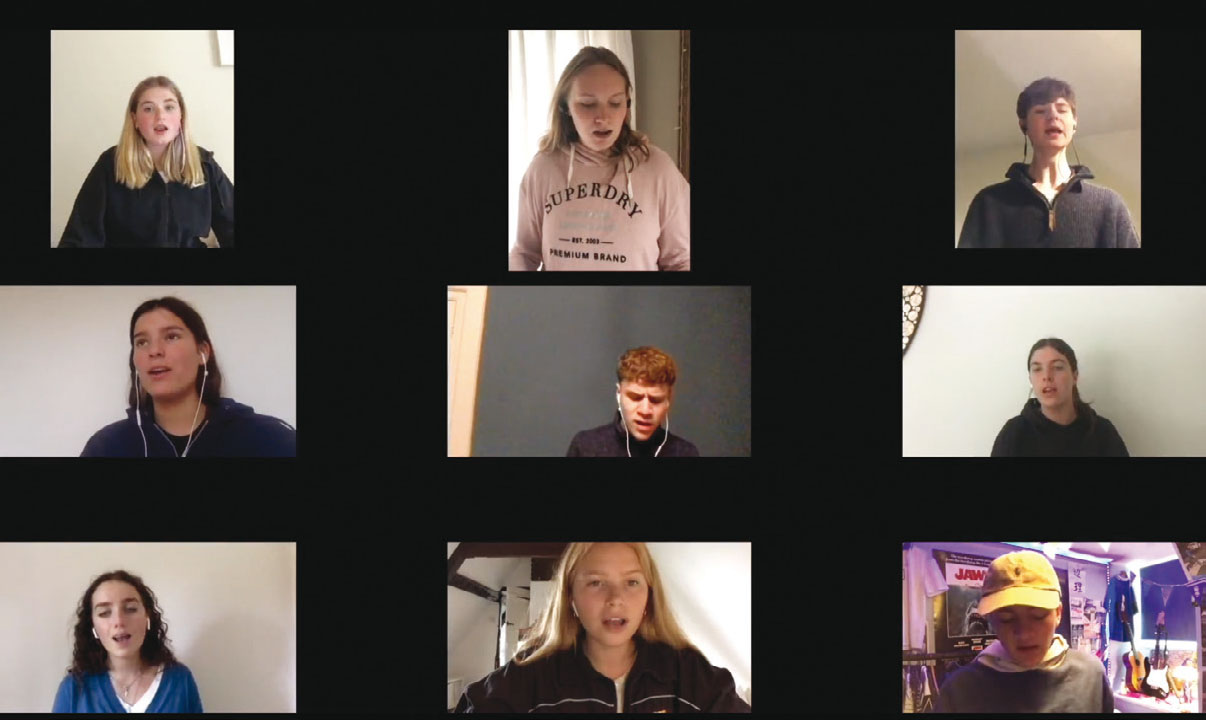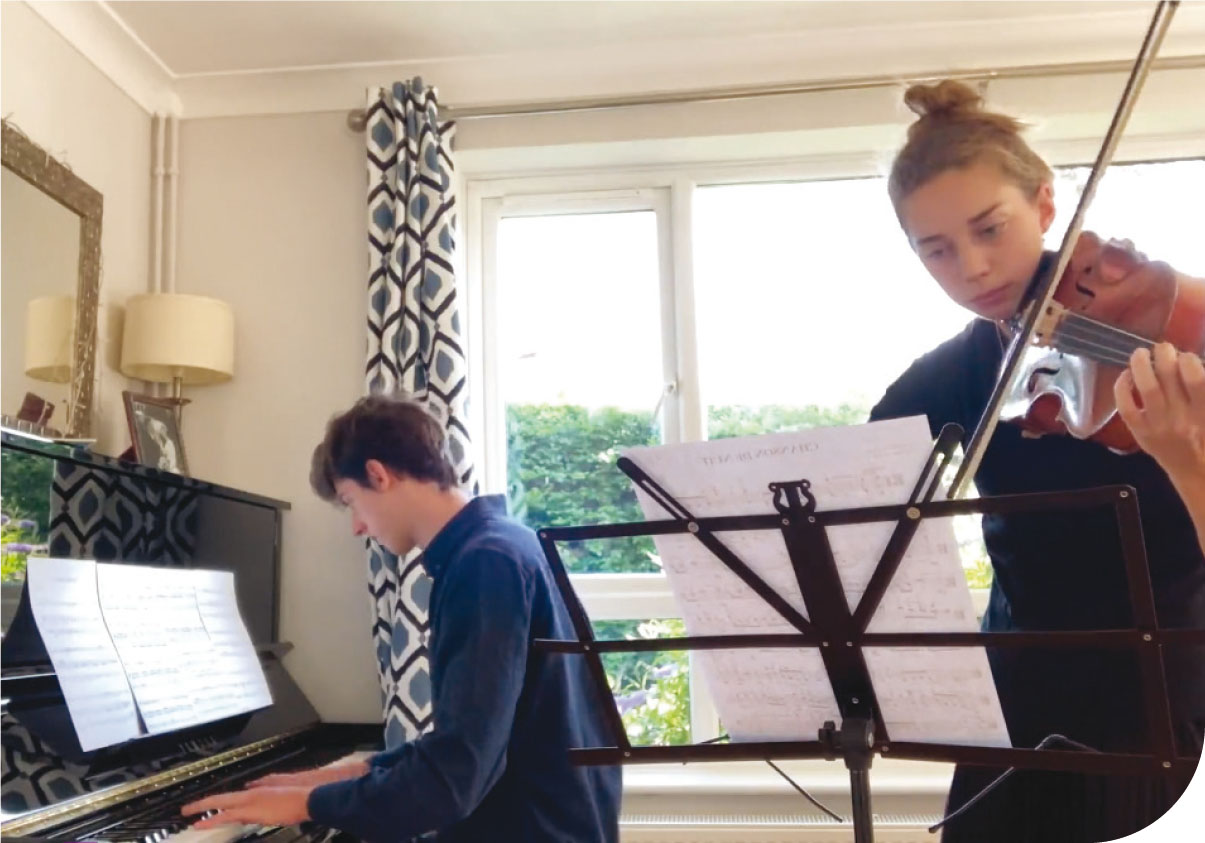
I was in the middle of a rehearsal when I got the news that exams were being cancelled. I returned to the stage in a mixture of confusion and elation. We had been working on the play for months. We managed to get one performance in, on the final afternoon before school shut – performing to cameras rather than a live audience.
Most of my friends are feeling vulnerable at the moment. We are, and will always be, the coronavirus year. The whole rhythm of our day disappeared in a flash. My college went heavy on Zoom. There was an attempt to preserve the school day. Teachers set more homework than usual, to try to make up for the lack of face-to-face teaching. After three weeks of an intensive Zoom timetable – with no exam flash-point in sight – the college made the decision to switch us to pre-A level courses.
The hardest thing about remote learning was the lack of personal interaction, both with peers and teachers. Not being in the same room together makes an enormous difference. There's something really special about being in the same space, reading someone's expressions and making music in real time. On the plus side, we had more time to work independently.
Having an altered timetable allowed me to fit in a lot more musical activities outside of normal college. For me, this meant working on my own song writing, collaborating with other singers and songwriters online. For others in my year, it meant recording performances for virtual concerts, singing choral parts for remote choir broadcasts and even online ABRSM exams.

Marlborough College Chapel Choir perform the traditional May Day madrigal, synced in iMovie
I am really lucky that I have built up a home studio over the last few years, collecting microphones and monitors to form a functioning setup. For other musicians, it has been more of a struggle. Some people tried buying things in the first few weeks after College shut, and got caught in the Amazon rush for microphones and all things audio-visual. For instrumentalist friends, having access to instruments was even more of a challenge.
I can't imagine how difficult it must have been for people whose music making relies on College facilities or other people. Choral singing has been shut down completely, with no light at the end of the tunnel. Pianists don't have access to pianos, and even if they do, they have to fit their practice schedules around homeworking and siblings.
For me, lockdown has been a growth experience. I have made music on my own terms and in my own time. I have the motivation to grow, and the space at home to allow it to happen. But this has taught me to appreciate the time spent in a classroom with a good teacher far more than I did before.
I like the idea of us being judged on our performance throughout the year, and not just our performance in a two-hour exam. I worked for two years, I did the GCSE course, and as long as I'm being judged fairly, I have no problem with it. Perhaps most importantly, lockdown helped us, as young people, to understand what time management is all about.

Siblings Sophie and Luke Smith perform in a virtual recital








